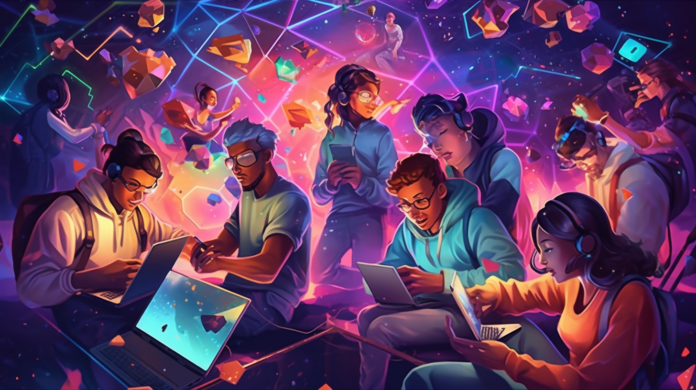Decentralized Autonomous Organizations (DAOs) are becoming increasingly influential in gaming. Their decentralized structures and community-driven decision-making processes lead to innovative game development and governance models. In this article, we’ll delve into the world of DAOs and explore how they’re reshaping the gaming landscape.
What are DAOs?
DAOs are organizations governed by their members through a decentralized and transparent decision-making process, often enabled by blockchain technology. DAO members can propose, discuss, and vote on various decisions, ensuring that the organization’s direction is determined collectively and democratically.
The Impact of DAOs on Game Development
DAOs are bringing a new level of collaboration and innovation to game development. By involving the community in the development process, DAOs can ensure that games are designed with the needs and preferences of players in mind, resulting in more engaging and user-centric gaming experiences. Additionally, the decentralized nature of DAOs can prevent the centralization of control and influence, fostering a more diverse and inclusive gaming ecosystem.
Some of the ways DAOs are transforming game development include:
- Crowdsourced game design: DAO members can propose and vote on various aspects of game design, such as characters, storylines, mechanics, and artwork. This collaborative approach can lead to more unique and innovative gaming experiences.
- Community-driven development: DAOs enable game developers to work directly with their community, incorporating feedback and suggestions throughout the development process. This helps ensure that the final product aligns with player expectations and interests.
- Funding and resource allocation: DAOs can use blockchain-based tokens and smart contracts to allocate funding and resources for game development projects. This helps ensure resources are distributed fairly and transparently based on community input and priorities.
The Role of DAOs in Gaming Governance
In addition to their impact on game development, DAOs play a crucial role in shaping the governance of gaming platforms and ecosystems. By empowering players and developers with a direct say in decision-making, DAOs can foster a more fair and equitable gaming environment.
Some key areas where DAO governance is making an impact include:
- Platform governance: DAOs can manage and govern gaming platforms, with members voting on platform upgrades, policy changes, and revenue distribution, for example. This can help to ensure that the platform’s direction and priorities are aligned with the interests of its users.
- In-game governance: DAOs can also be used to govern in-game economies, communities, and environments. Players can vote on issues such as in-game rule changes, economic policies, and community guidelines, ensuring the gaming experience remains fair, balanced, and enjoyable for all participants.
- Dispute resolution: DAOs can provide decentralized and transparent mechanisms or resolving disputes between players, developers, and other stakeholders. By leveraging blockchain technology and smart contracts, DAOs can facilitate a fair and unbiased dispute resolution process that considers the interests of all parties involved.
DAOs and the Future of Gaming
As the gaming industry continues to evolve, DAOs have the potential to become an increasingly integral part of the gaming landscape. Their decentralized, community-driven approach to game development and governance can lead to more engaging, diverse, and inclusive gaming experiences catering to various player preferences and interests.
Here are some ways DAOs could shape the future of gaming:
- Expansion of play-to-earn models: DAOs can facilitate the growth and adoption of play-to-earn gaming models, where players can earn digital assets and cryptocurrencies through their in-game activities. DAOs can ensure these models remain fair and transparent by providing decentralized governance and resource allocation mechanisms.
- Creation of decentralized gaming metaverses: As gaming metaverses gain traction, DAOs can play a crucial role in managing and governing these virtual worlds. By allowing players to vote on the rules, policies, and direction of the metaverse, DAOs can help to create truly player-driven and immersive gaming experiences.
- Fostering collaboration between developers and players: DAOs can encourage greater collaboration between game developers and players, breaking down traditional barriers between creators and consumers. This can lead to more innovative and user-centric game development and a stronger sense of community and shared ownership within the gaming ecosystem.
Conclusion
The rise of DAOs in gaming represents a shift towards more decentralized, community-driven game development and governance models. By empowering players and developers with a direct say in decision-making, DAOs have the potential to reshape the gaming landscape, fostering innovation, collaboration, and inclusivity. As the gaming industry evolves, DAOs will likely play an increasingly important role in shaping the future of gaming experiences and ecosystems.
